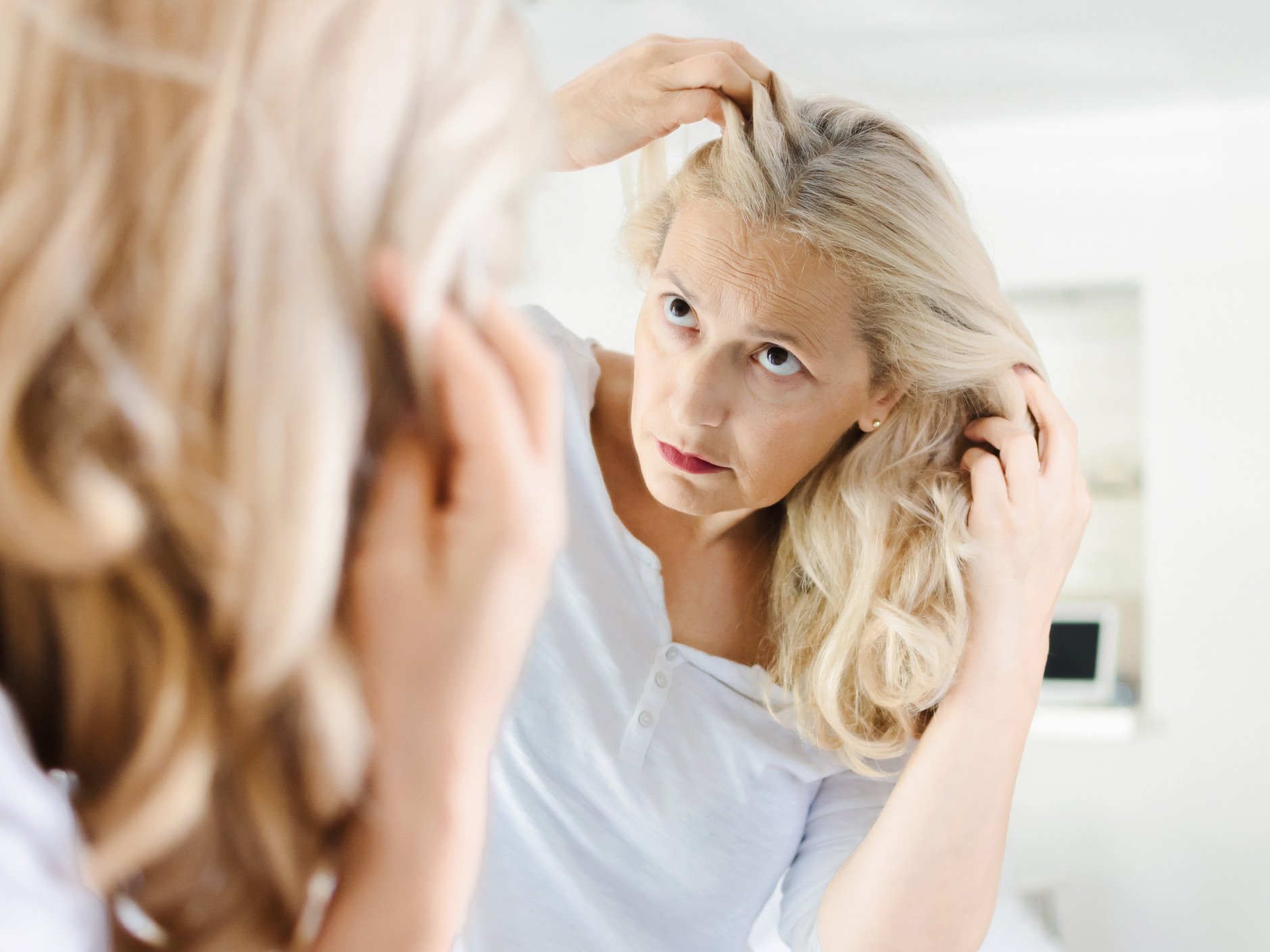Get Easy Health Digest™ in your inbox and don’t miss a thing when you subscribe today. Plus, get the free bonus report, Mother Nature’s Tips, Tricks and Remedies for Cholesterol, Blood Pressure & Blood Sugar as my way of saying welcome to the community!
The not-so-beautiful side effect of beauty supplements

There are a lot of factors that can affect the health of your hair, skin, and nails…
Thyroid issues, hormonal imbalances, medication, aging.
But no matter what’s behind your issues, the result is the same: slipping self-confidence.
Thinning hair, brittle nails, ruddy skin can all make you feel like you have to hide part of yourself. Whether that means wearing hats, getting fake nails or covering your face with makeup.
Now, the truth is you don’t have to hide anything — ever. Every part of you is just fine, even if it doesn’t look like what you see in commercials, magazines, and Instagram posts. But that doesn’t change the fact that we want to look our best and feel embarrassed when we don’t.
Related: Is bacteria behind your hair loss?
A lot of people turn to supplements for help with hair, skin and nail issues. Heck, I’ve tried hair, skin and nail supplements myself looking for a little beauty boost. Unfortunately, these supplements have a serious downside…
A vitamin in them could interfere with lab tests used to detect major health conditions.
Beauty-boosting biotin may prevent you from getting a proper diagnosis
If you read the label on hair, skin and nail supplements, you’ll almost always see one ingredient — biotin (also known as vitamin B7).
Biotin deficiency can lead to hair and skin problems, which may be why it’s included in supplements for healthy, hair skin and nails. It’s also in multivitamins, B-complex vitamins, and prenatal vitamins.
Now, biotin deficiency can cause hair loss, rashes and even neurologic symptoms. So, you obviously want to get enough. But most supplements include way more than you need. The RDA for biotin is 0.03 mg. A lot of supplements contain 20 mg of biotin per pill. Some contain as much as 100 mg per pill.
According to the FDA, there’s a big problem with taking this much…
Large amounts of biotin in your blood can cause the results of certain medical tests to come back too high or too low. Why?
Because biotin is used in some lab testing technology. Hormone tests use biotin, for example. And, so do tests for the cardiac health marker troponin.
Troponin levels are used to diagnose heart attacks, so a falsely low test could put your life in danger. In fact, the FDA found that at least one person has died for this very reason.
The safer way to get healthy hair, skin, and nails
If you take hair, skin and nails supplements, multivitamins, B-complex vitamins or prenatal vitamins, I’d highly recommend double-checking the amount of biotin they contain.
Adults should get 30 to 100 micrograms per day, max. And you can easily get that without the help of supplements. Just eat foods like:
- Salmon
- Eggs
- Avocado
- Raspberries
- Cauliflower
- Whole grains
- Mushrooms
- Bananas
- Nuts
If you eat these and other whole foods (especially ones filled with healthy fats), you’ll be surprised what a difference it makes in the health of your hair and skin. Suddenly, those hair, skin and nail supplements will feel completely unnecessary anyway.
Editor’s Note: The results of a $100 million dollar study was recently presented to the American Heart Association. The verdict? Heart procedures don’t seem to help people with stable heart disease avoid heart attacks more than drugs and lifestyle changes do. So before you submit to any heart treatment, discover the truth you won’t find at your doctor’s office: Read this FREE report…
Sources:
- The FDA Warns that Biotin May Interfere with Lab Tests: FDA Safety Communication — U.S. Food and Drug Administration
- UPDATE: The FDA Warns that Biotin May Interfere with Lab Tests: FDA Safety Communication — U.S. Food and Drug Administration
- Biotin — Oregon State University
- Biotin for Hair Growth: Does It Work? — Healthline
- What are the health benefits of biotin? — Medical News Today













